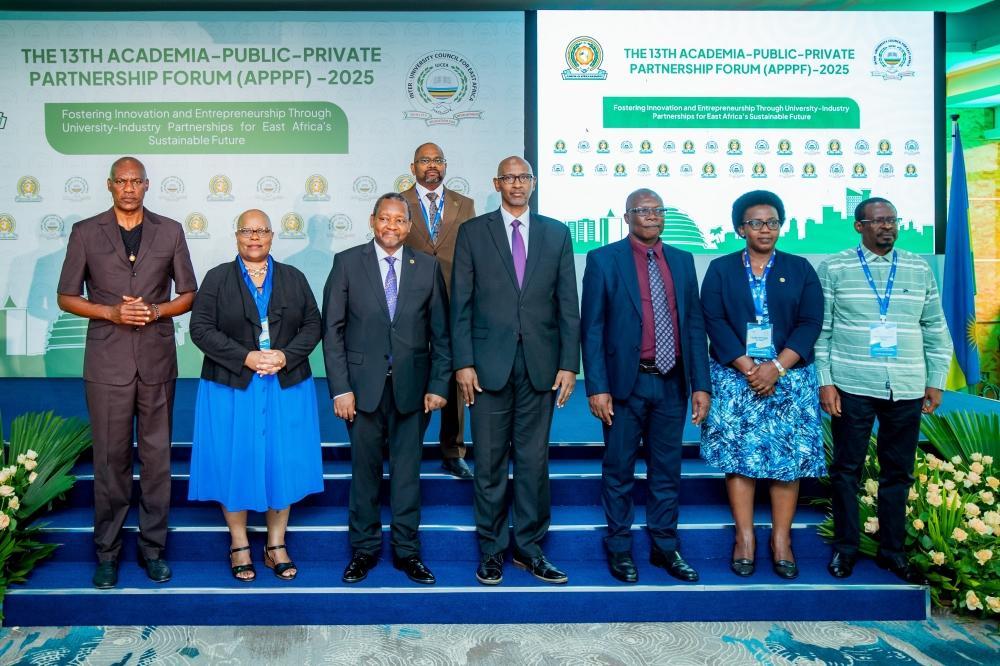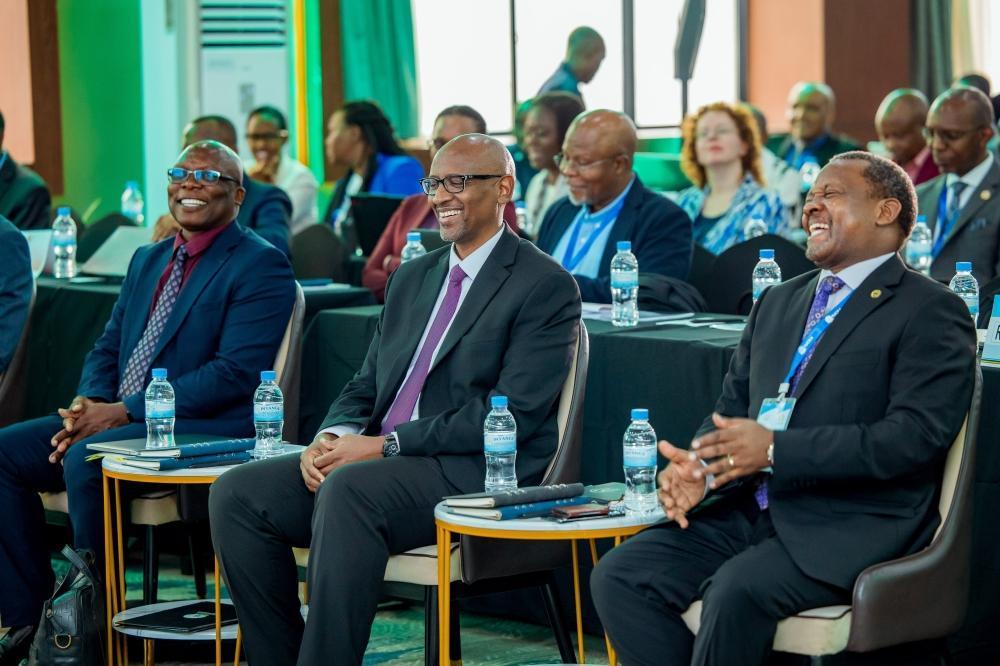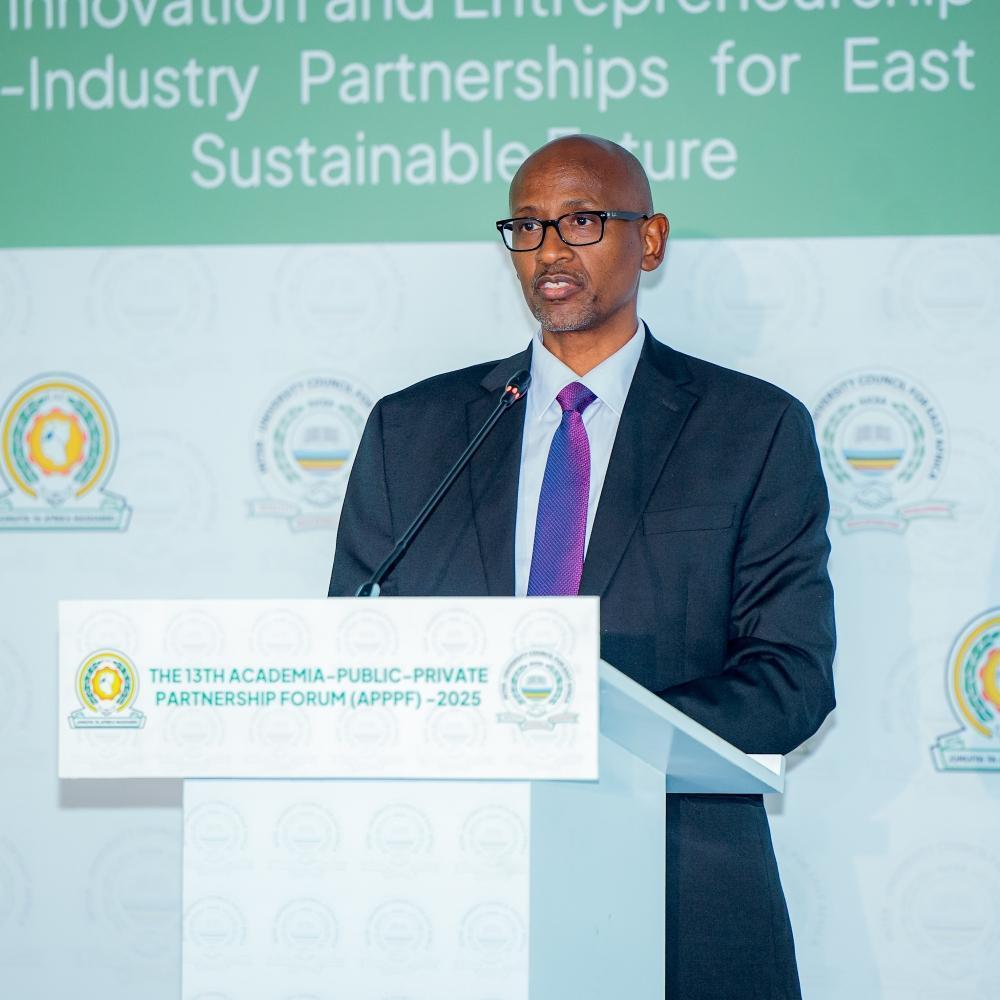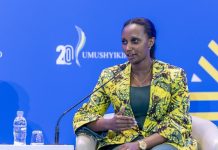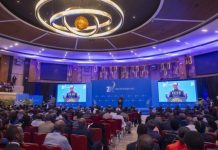Africa-Press – Rwanda. Academics and employers came together in Kigali on Wednesday, March 12, to discuss a persistent “skills mismatch” between what universities teach and what employers need from graduates.
At the 13th Academia Public-Private Partnership Forum, organized by the Inter-University Council for East Africa (IUCEA), delegates called for a stronger partnership to keep up with the fast-paced world, where evolving technologies require updated skills for the graduates to meet market demands.
The forum brought together academia, industry leaders, policymakers, and development partners to explore strategies for fostering innovation and entrepreneurship through industry partnerships. The goal is to build a sustainable future for East Africa by addressing the skills gap.
This urgent call to action is particularly relevant for the region, and the African continent which has a largely young populations. Despite this, a huge skills gap remains between the skills universities provide and what employers demand, placing “Africa at a crossroads in its economic development.”
The forum brought together academia, industry leaders, policymakers, and development partners to explore strategies for fostering innovation and entrepreneurship through industry partnerships
“Across Africa, an estimated 10-12 million young people enter the labor market each year, yet only around three million formal jobs are created according to the latest data of African Development Bank,” said Edward Kadozi, the Director General of Rwanda’s Higher Education Council.
“Even those who find jobs often discover their skills are not fully aligned with their roles, with nearly half of employed African youth reporting a mismatch. As you are aware, East Africa is also no exception.”
According to the International Labor Organization, the youth unemployment rate in Sub-Saharan Africa stood at 21.9 per cent in 2023, surpassing the global average of 20.4 per cent. This growing challenge threatens socio-economic stability and underlines the need for stronger university-industry collaboration, according to experts.
Africa’s overall investment in research and development remains low, at approximately 0.5 per cent of its GDP, while the global average exceeds 2 per cent, according to the World Bank.
“Insufficient collaboration between academia and industry results in universities producing graduates who, despite their academic achievements, lack the practical skills required to meet current market demands,” said Kadozi.
Gaspard Banyankimbona, the Executive Secretary of the Inter-University Council for East Africa, said the event was organised around the “need for innovation and making the potential of young talents” to move forward and “make impact economic development.”
“It’s obvious that the job market that is represented by the industries and employers always complain about fresh graduates because they don’t meet what the industries require. Similarly, universities complain about not getting the needed support from industries. We want to leverage these partnerships to help unlock for the good of East African people,” Banyankimbona said.
How to leverage these partnerships?
Banyankimbona said that numerous ways can be used including engagement of industries with Universities during the curriculum development process so that they meet required skills at the industry level. However, he said, “industries should also open doors for students to get hands-on-skills while at school.”
this is an observation echoed by Kadozi.
“Higher learning institutions must update curricula based on industry feedback and integrate internships to address real-world problems. With this, there won’t be any blame game,” he said.
Reference on the global benchmark
Global and regional success stories prove the potential impact of strong academia- industry partnerships.
For instance, in the United States, Massachusetts Institute of Technology (MIT) has historically collaborated with major corporations to incentivizing the development advanced technologies.
In China, Tsinghua University has created one of the world’s largest innovation hubs integrating research, startups, and corporate R&D.
“If the East African Community is to compete globally, we must cultivate homegrown innovations, nurture entrepreneurial mindsets, and create an ecosystem where knowledge and industry intersect,” said Joseph Nsengimana, the Minister of Education.
Joseph Nsengimana, the Minister of Education addresses delegates at the forum in Kigali
“Rwanda firmly believes that a dynamic, inclusive, and responsive education system is the key to shared prosperity. Strong academia-industry partnerships ensure that graduates become job creators and solution providers for Africa’s development,” he said.
“I encourage the private sector [and universities] to take a proactive role by co-developing curricula, encouraging research collaborations, and launching initiatives that create a win-win scenario-where industries gain skilled professionals, and graduates’ access meaningful opportunities,” he added.
For More News And Analysis About Rwanda Follow Africa-Press

